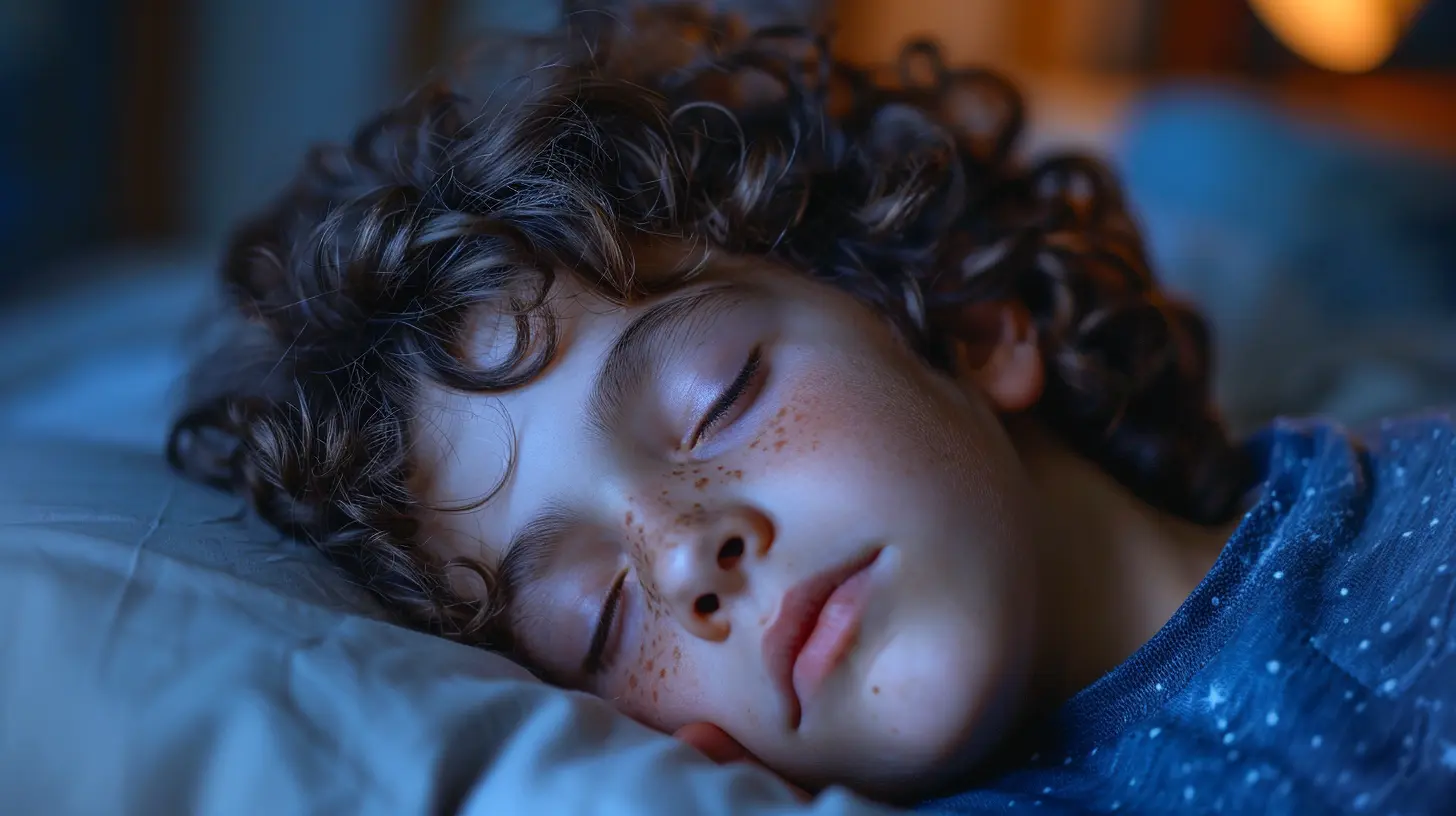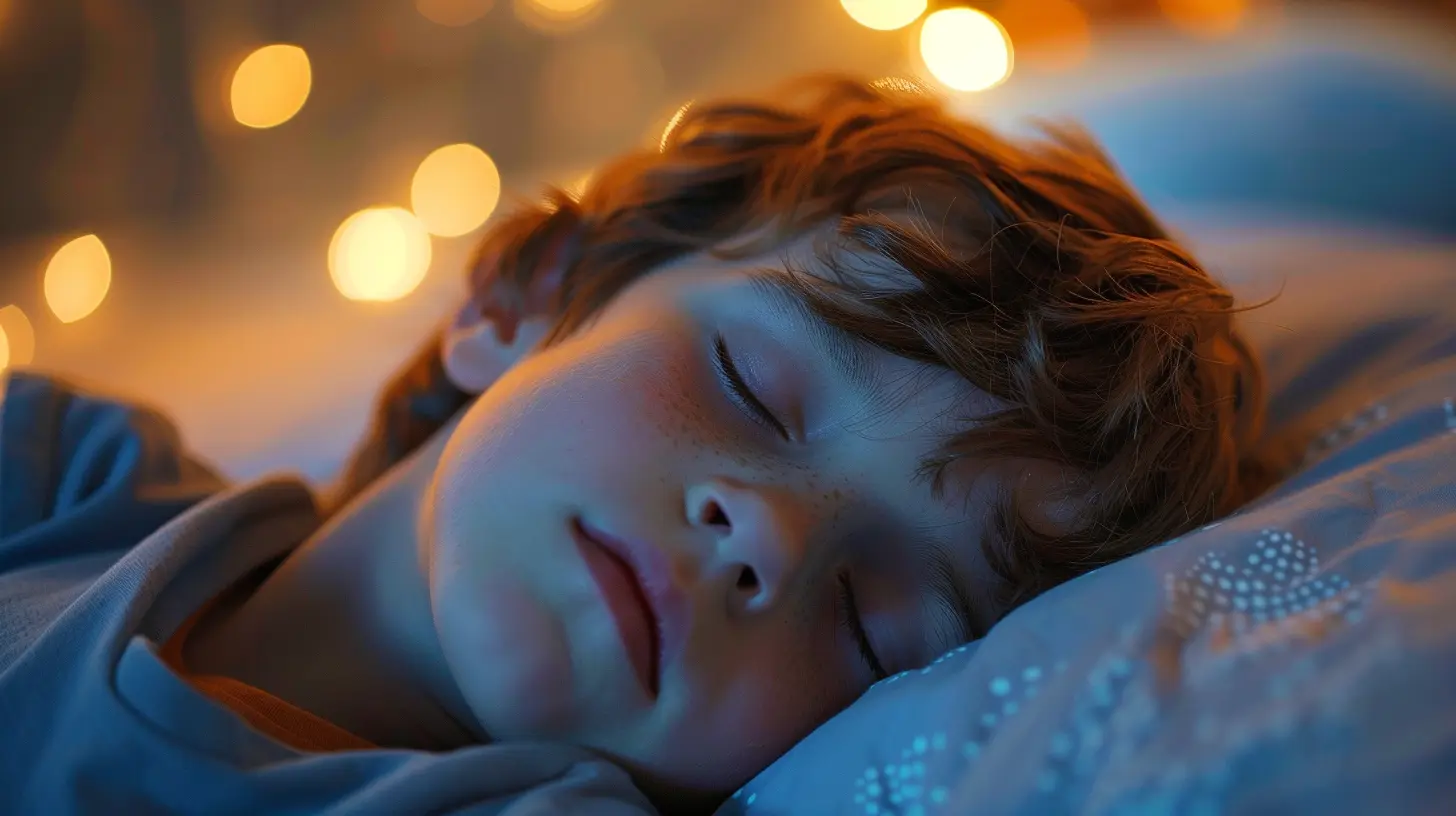Autism and Sleep: Overcoming Common Challenges
2 September 2025
Getting a good night’s sleep is essential for everyone, but for individuals with autism, it can be especially challenging. Many autistic people struggle with falling asleep, staying asleep, or maintaining a healthy sleep routine. If you or a loved one has autism and sleep issues, you know how frustrating and exhausting it can be.
But why does this happen? And more importantly, what can you do about it? Let’s break it down and look at ways to tackle sleep troubles head-on.

Why Do People with Autism Struggle with Sleep?
Sleep problems are incredibly common among autistic individuals, with studies suggesting that 40–80% of people on the spectrum experience them. But why? Several factors contribute to these difficulties:1. Irregular Melatonin Production
Melatonin is the hormone that tells your body when it's time to sleep. However, many autistic people produce melatonin at different rates or at unusual times, making it hard to regulate their sleep-wake cycle. This can lead to trouble falling asleep or waking up too early.2. Sensory Sensitivities
Autistic individuals often have heightened sensory sensitivities. Bright lights, background noise, certain textures, or even the temperature of a room can make sleep challenging. Imagine trying to sleep while the sound of a ticking clock feels like a drum in your ear or the texture of your blanket feels scratchy and uncomfortable.3. Anxiety and Overthinking
Many autistic individuals experience higher levels of anxiety, which can make it hard to relax at night. Racing thoughts, worries about the day, or even excitement about something upcoming can keep the brain active long past bedtime.4. Difficulty with Routine Changes
A consistent bedtime routine is crucial for quality sleep, but changes—like daylight savings time, vacations, or even a different bedtime story—can throw everything off. Many autistic people rely on strict routines, and any deviation can cause stress, leading to sleep disruption.5. Gastrointestinal Issues
Sleep struggles aren’t always just about the brain. Many autistic individuals deal with gut issues like acid reflux or constipation, which can cause discomfort and disrupt sleep. If someone is tossing and turning because their stomach hurts, getting rest becomes nearly impossible.6. Co-Occurring Conditions
Autism often comes with other conditions, such as ADHD or epilepsy, that can also interfere with sleep. ADHD makes it difficult to wind down, while seizures may cause frequent nighttime awakenings.
How Can You Improve Sleep for Someone with Autism?
Now that we know why sleep can be such a struggle, let’s look at some practical solutions.1. Create a Consistent Sleep Routine
Routine is everything. Going to bed and waking up at the same time every day (including weekends) helps regulate the body’s internal clock. A predictable bedtime routine might include:- Taking a warm bath
- Brushing teeth
- Reading a calming book
- Listening to soft music
- Dimming the lights
The key is to stick to the same sequence every night. It signals to the brain that it's time to wind down.
2. Optimize the Sleep Environment
A comfortable sleep environment makes a huge difference. Consider:- Lighting: Use blackout curtains or dim lights before bedtime to support melatonin production.
- Noise Levels: White noise machines or noise-canceling earplugs can help block out distractions.
- Bedding: Soft, non-irritating sheets and weighted blankets can provide a calming effect.
- Temperature: Keep the room cool but comfortable, as overheating can make it hard to sleep.
3. Limit Screen Time Before Bed
Blue light from screens (phones, tablets, TVs) interferes with melatonin production, making it harder to fall asleep. Try to turn off screens at least an hour before bedtime. If that’s not possible, use blue light filters or night mode settings.4. Be Mindful of Diet and Supplements
Food and drinks can impact sleep. Be mindful of:- Caffeine and Sugar: Avoid caffeinated drinks, chocolate, or sugary snacks at least four hours before bed.
- Melatonin Supplements: Some autistic individuals benefit from melatonin supplements, but always consult a doctor before trying them.
- Magnesium and Probiotics: These may support relaxation and gut health, which can help with sleep.
5. Manage Anxiety and Overstimulation
Since anxiety plays a big role in sleep problems, practicing relaxation techniques can be helpful:- Deep breathing exercises to calm the nervous system
- Weighted blankets to provide a sense of security
- Guided meditation or bedtime stories designed for relaxation
Some individuals find comfort in certain repetitive motions, such as rocking or fidgeting, to soothe themselves to sleep.
6. Address Any Medical Concerns
If gastrointestinal issues, sleep apnea, or other medical conditions are present, it’s essential to address them. A healthcare provider can help identify underlying medical reasons for poor sleep and provide tailored treatment options.7. Gradually Adjust to Changes
If a change in routine is necessary (like transitioning to a new bedroom or adjusting bedtime hours), make changes gradually. Sudden shifts can cause distress, but small, consistent adjustments over time can ease the transition.8. Use Visual Schedules and Timers
Many autistic individuals respond well to visual cues. Consider using:- Picture schedules to outline the bedtime routine step by step
- Timers to signal when it’s time to transition to the next step in the routine
- Social stories to help explain bedtime expectations in an engaging way

What If Sleep Problems Persist?
Even with all these adjustments, some individuals still have trouble sleeping. If sleep disturbances continue, it may be time to seek professional help. A doctor or sleep specialist can assess whether there may be underlying medical or neurological causes contributing to sleep difficulties.In some cases, behavioral therapy, sleep studies, or medication may be necessary. The key is to be patient and persistent while finding what works best for the individual.

Final Thoughts
Sleep challenges are tough, but they’re not impossible to overcome. With the right routine, sensory adjustments, and a bit of patience, many autistic individuals can experience better sleep. It won’t happen overnight (pun intended), but even small improvements can make a big difference.If you’re supporting a loved one with autism who struggles with sleep, remember—you’re not alone in this journey. Keep experimenting to find what works best, and don’t hesitate to seek professional guidance if needed. Sleep is essential for overall health and happiness, and with the right strategies, restful nights are within reach.
all images in this post were generated using AI tools
Category:
AutismAuthor:

Paulina Sanders
Discussion
rate this article
1 comments
Roxie McConnell
Sleep challenges in individuals with autism are often overlooked. Understanding sensory sensitivities and establishing structured routines can significantly improve sleep quality. It’s essential for caregivers to adapt strategies tailored to each individual’s unique needs.
October 1, 2025 at 3:58 PM

Paulina Sanders
Thank you for highlighting this important issue! Tailoring strategies to individual needs and understanding sensory sensitivities are crucial for improving sleep quality in individuals with autism. Your insights are invaluable for caregivers.


